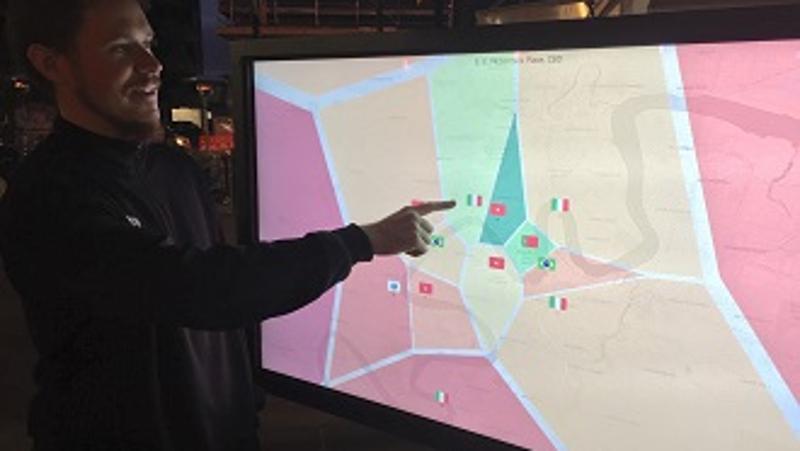
Data flows from wireless objects, sensors and processors all around us. If knowledge is power, then the Internet of Things favours those able to easily collect, access and interpret information. The less data-savvy are being increasingly left behind.
Hoping to reverse this trend and navigate a rising tide of data is QUT Design Lab PhD candidate Daniel Filonik. His research project, DataChopin, explores the notion of participatory data analytics and the democratisation of its capabilities.
“While large public and private entities can rely on data scientists and experts to derive meaning and value from data, individuals or smaller businesses cannot afford to make such investments,” Mr Filonik explained.
This asymmetric relationship between data collectors and data collection targets is a major obstacle for unlocking a more widespread adoption of data, along with the associated societal benefits.
The DataChopin collaborative visualisation interface is the practical outcome of this effort, developed over the course of multiple iterations spanning across three different use cases.
“It allows for simple, touch-based interactions for composing visualisations,” Mr Filonik said.
DataChopin uses large-scale, interactive displays as a shared desktop to involve multiple users in the analysis. It allows for simple, touch-based interactions for composing visualisations. This experience helps users to easily comprehend and manipulate large volumes of data.
To test its capabilities, in late 2016 the program was deployed at Wandering Cooks, a Brisbane community hub providing kitchen space to street food vendors.
Participants were concerned that delivering high-quality food around Brisbane was too challenging. Regulations, site fees, and other risk factors such as weather, competition, and food preferences were detrimental to business.
Using the DataChopin prototype, the participants were able to collectively explore questions such as:
•What locations are available and what is happening around them?
•What are the most consistent, profitable spots for food trucks?
•What are potential target groups and what are their preferences?
•How can you coordinate and synergise with other food trucks?
By making the most up-to-date and relevant information about ongoing events in the city available at a glance, and directly involving street food vendors, participatory data analytics was able to improve business prospects and show the availability of street food in general.
“Many were enthusiastic about the premise, thoroughly exploring the capabilities and limitations of DataChopin. One participant expressed interest in having meteorological records in order to better understand the impact that weather had on their sales,” Mr Filonik said.
“Generally, participants were optimistic that such a collaborative approach would ultimately benefit the food truck community as a whole.”
Dr Markus Rittenbruch, Principal PhD supervisor said DataChopin was part of the QUT Design Lab’s research focus on smart cities and urban informatics.
“The project specifically addresses the notion of ‘Smart Citizens’, which explores how everyday citizens can be supported to make use of urban data sets,” Dr Rittenbruch said.
“The use of DataChopin at Wandering Cooks showcased how participatory data visualisation can help small and mediums enterprises to interpret complex data and help citizens to play an active role in shaping the city.”
The next stages of the project include taking DataChopin from a research prototype to a commercial quality version for public use, along with exploring more diverse usage scenarios and technologies.
Read the full story on the Creative Industries Faculty's online magazine, No Walls.




